After the conclusion of an eventful day two here at Build, I thought I would share some insight into what I thought it all meant. In a nutshell, we live in a post OS world and Microsoft is embracing it with Azure it while maintaining its flagship compiler in an interestingly new way. Let me elaborate a bit.
.NET
It is hard to grasp the entire reality of what Roslyn actually means for .NET. If a static language is a house, the compiler is its foundation. What Microsoft in effect did with the Roslyn project is pick up the house and build a new foundation while attempting to maintain the integrity of the walls. My sources tell me that every single .NET product in Microsoft is now compiled using Roslyn. This is a remarkable feat. To one-up themselves, they decided to go ahead and open source the entire Roslyn compiler. The first and obvious question is “why?” In an interview with Mads Torgersen (more on that later) he mentioned that doing so would allow folks to do more interesting things not only with the languages themselves, but with how the languages interact within Visual Studio. In other words, partners would have the same advantages as Microsoft when building tooling around Visual Studio.
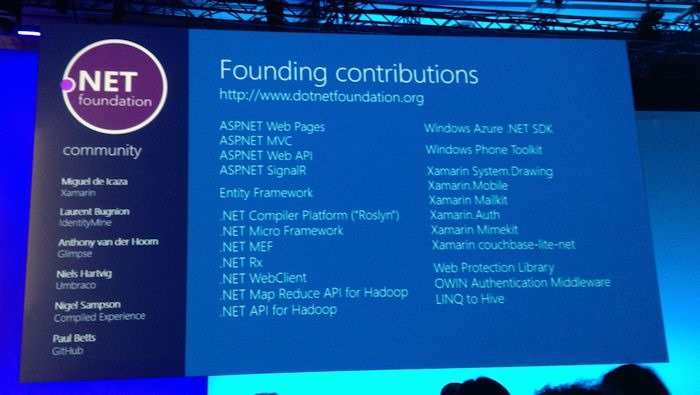
Also, with the creation of the .NET foundation, anyone can contribute to .NET making it a truly vibrant and potentially innovative platform for development. Notice that at the forefront of the list of those in the .NET community is Miguel de Icaza. At Mix 11 I remember he coined the phrase “We love C# more than Microsoft does.” I believe that is no longer the case. It seems to me that for truly native device experiences Microsoft is putting all of its support behind Xamarin.

What you see above is not a keynote, it is a regular conference session with a little less than 1200 in attendance. It is clear that not only is Microsoft putting its stamp of approval on the Xamarin approach, but the Microsoft community is eager to use .NET to deliver multi-device experiences.
Windows Azure
In yesterday’s summary I mentioned that we live in a post OS world. Devices are becoming the ubiquitous computing platform of choice for completing quick every day tasks. Yesterday we saw devices 9” and smaller get an incredible offer: a free OS. While this seems completely contradictory, Microsoft has “reimagined” (to use their favorite term) the OS in a non-OS way.
Microsoft today announced a number of IaaS and PaaS improvements and features that make Azure the ultimate OS with devices being the new “programs” so-to-speak. Just like windows of yore welcomed programs from really any source (including competitors), they are now embracing devices in exactly the same way. They are making it easy to create the backend infrastructure to support these devices in a pretty amazing way. Never in my life could I have imagined a John Gruber presentation during a Microsoft keynote; yet nonetheless there it was. It turns out that if John himself wants to build a killer app with cloud persistence he really can only turn to Amazon or Microsoft – Apple can’t help. While IaaS is interesting, it’s PaaS that is compelling to me. On that front Microsoft made announcements for Web, Mobile, and Data use cases in the cloud.
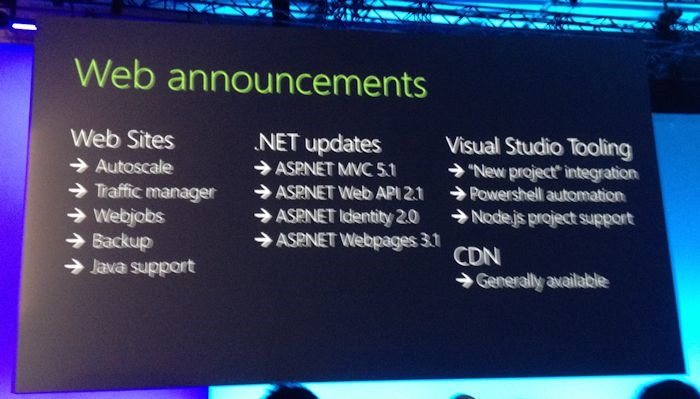
For web anyone can now easily scale a website, manage traffic, backup, and run long running jobs pretty easily directly from Visual Studio. Many of these features were previously in beta mode.
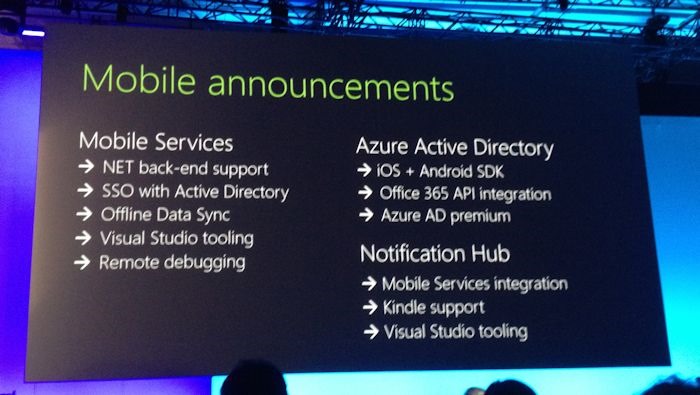
Azure as a mobile backend handles a ton of functionality that would otherwise be difficult for a small shop to administer.
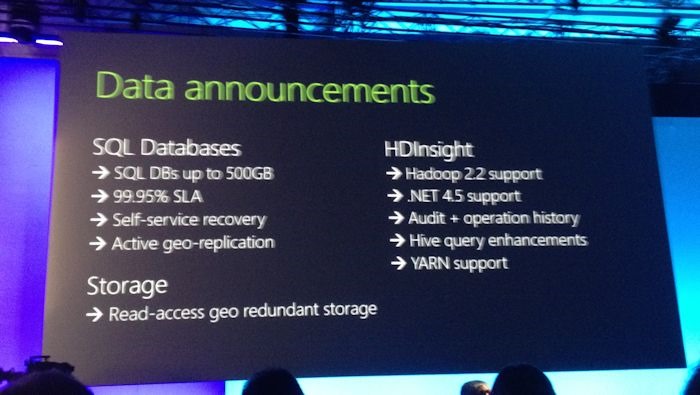
And finally Azure as a repository of data is a compelling alternative.
The idea that the cloud was the new Microsoft OS dawned on me when I looked at this:
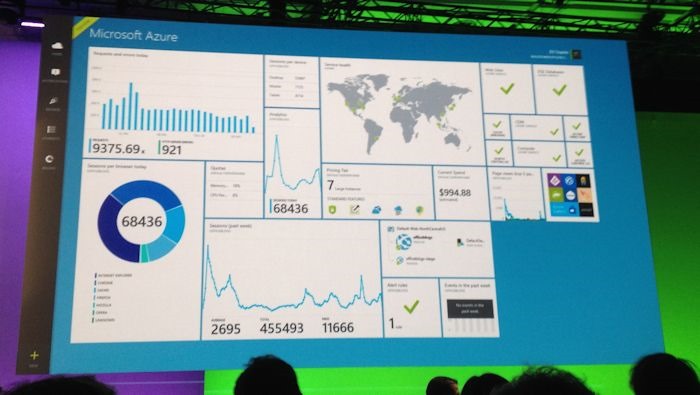
It looks like the control panel (or task manager) for an OS! While this is not a revelation to some, it has become clear to me that this is really the only play Microsoft has: it also turns out to be the best one.
Summary
What does this mean for you dear DevExpress reader? I think it means it is an exciting time to be a developer in the .NET space. I also think it is a great opportunity for you to leverage some of the innovations we have been building into more traditional .NET technologies that are designed to bridge the gap between your current investments and the new directions Microsoft is taking.
As always, if there are any comments and/or questions, feel free to get a hold of me!
Seth Juarez
Email: sethj@devexpress.com
Twitter: @SethJuarez
Free DevExpress Products - Get Your Copy Today
The following free DevExpress product offers remain available. Should you have any questions about the free offers below, please submit a ticket via the
DevExpress Support Center at your convenience. We'll be happy to follow-up.